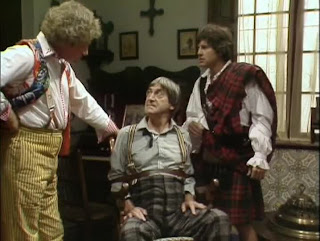Companion: Barbara, Ian, Vicki
Written by: Bill Strutton
Directed by: Richard Martin
Background & Significance: "The Web Planet" is just one of those serials. It's oft forgotten by most fans, and, when you look for it on rankings of Doctor Who stories, it will inevitably always be incredibly low on the list. In Doctor Who Magazine's Mighty 200 Poll, it came after "The Gunfighters" in terms of Hartnell, ahead of only "The Sensorites" and "The Space Museum".
Producer Verity Lambert and script editor David Whitaker wanted to create another successful monster in the way The Daleks had been successful in the previous year. Enter Bill Strutton, who pitched an idea for (essentially) "giant ants" and Lambert and Whitaker loved the idea so much they didn't even request a storyline. They picked up six episodes, which was not a standard practice at the time. And suddenly everyone was off and running, with Strutton figuring out his scripts and Lambert working to figure out how the hell to make this thing producible.
The result is... well... for lack of better term: magic. Again it's widely panned and muchly maligned mostly due to the design and special effects used. As we've spoken of previously, special effects are the aspect of movies/TV/etc. that age worst as time goes on. Today, The Lord of the Rings trilogy still looks pretty good, but is nowhere near the quality of what's coming out today. Hell, look at Alien. Released just a year later than Star Wars and it looks that much better. And with "The Web Planet" being as ambitious as it is, it's no wonder it hasn't aged spectacularly. And yet, perhaps, maybe there's more to it than you might initially expect. I mean, after all, this is the story that Neil Gaiman (having gone back and rewatching EVERYTHING as an adult) refuses to ever rewatch because it scared the pants off of him as a wee lad. He knows it won't hold up, and yet his memory of it holds and he's still a bit scared of it to this day.
A total turkey, then? It does bring the idea into question.
So let's get to it!













